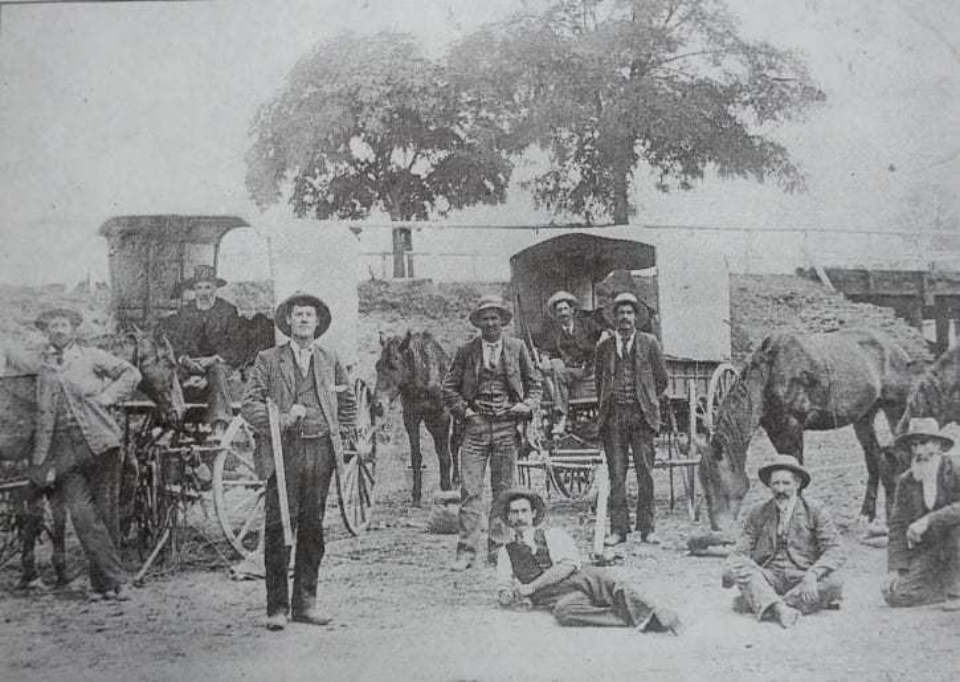Use this script: Agony Uncle helps you get a better deal
In this help sheet series, Our Community’s resident agony uncle, Chris Borthwick, offers answers to frequently asked questions about issues not-for-profits are facing during the COVID-19 pandemic.
Historical society's battle for survival could help you too
We know many smaller not-for-profits don’t qualify for the JobKeeper or cash boost schemes. So when the Historical Society of Mooroopna got in touch to ask what it could do to ease the squeeze, Agony Uncle (aka Chris Borthwick) and the rest of the Our Community team came up with a stack of suggestions on how it could reduce costs, boost income and win support.
Scroll down if you want to jump straight to our tips and insurance discount template letter.

Otherwise, here’s some context.
The Historical Society operates a small not-for-profit museum in the town on the banks of the Goulburn River in north-central Victoria.
Like many similar organisations, it has been severely affected by the COVID-19 crisis, with income drying up while costs continue to accrue.
Barry Campbell is secretary of the society and a veteran public figure in the local community. He has been part of the Rotary Club for 55 years, served several terms as president of Shepparton Retirement Villages and was 2014 Greater Shepparton Australia Day Citizen of the Year.
While Barry has witnessed many economic ups and downs, the virus crisis has had him fearing the worst for the Society, as it fell through the cracks of government assistance in the form of JobKeeper and the cash boost scheme.
In his hunt for assistance, Barry got in touch with Our Community’s Save Our Sector campaign, writing: “We will be unable to raise money as usual so that what we have will quickly disappear. Twelve months would clean us out. We would love to be able to get financial assistance to help us survive. Do you have suggestions?”
While Our Community doesn’t have the resources to provide individual help to every organisation in peril, the Society’s challenges mirror those of many groups, so we deployed our “hive mind” to come up with these suggestions. We believe your organisation might also benefit.

Picture: Historical Society of Mooroopna
Things not-for-profits can do to reduce costs and boost income

- Contact your insurer and ask for a reduction in your premium, based on a lower risk profile as a result of fewer people using services and a drop in public liability.
- Contact your local council and ask for a reduction in charges such as bin fees.
- Contact your mayor and ask about local grants, and consider contacting your local MP about the funds at their disposal.
- Contact your bank and ask how you can apply for a grant or other assistance.
- Consider using your website to spruik what you have to sell, whether it’s goods or services. Alert your membership and ask them to spread the word.
- Add a donations button to your site. GiveNow, Our Community’s low-fee donations platform, is a good option. Share your campaign with every member and alert family and friends. Considering launching a #GivingTuesdayNow campaign this May, including adding your needs to the Generosity Register.
- Are you a deductible gift recipient (DGR)? Look into the Foundation for Rural and Regional Renewal’s (FRRR’s) not-for-profit fundraising accounts, which might enable you to get that tax advantage.
- Read this article on the Funding Centre website that addresses how you can adapt your fundraising in in light of COVID-19.
- Read the latest free advice, links to webinars and other help in the Save Our Sector bulletin (subscribe here) or on the website.
Soon after receiving our suggestions, Barry and the Society sprang into action, and before too long they had:
- Got in touch with their state MP, who in turn picked up the phone to the Greater Shepparton City Council to discuss grants possibilities
- Applied for a $5000 Bank of Melbourne grant
- Sought an insurance discount through their peak body, the Federation of Australian Historical Societies
- Sought help from their electricity provider and considered solar panels
- Won a discount on their water bill
- Started setting up a GiveNow donations page and investigated crowdfunding
- Looked at ways to promote the fact their website is now selling pictures and allows virtual visits
- Asked all their members to consider supporting them, and sought new members.
The Society is seeing some early signs of success in its mission and starting to feel more confident about its prospects. Which brings us to another tool you might want to use.
Use this script to seek relief from your insurer
Here’s a letter that Barry used on his insurer. Feel free to adapt it to suit your organisation and to modify it to target utility providers, your council, banks and others.
Dear Great Big Insurer,
I am a representative of the <insert name of your organisation> <websiteURL>, a small/medium/large regional/suburban/city not-for profit organisation that has been for some years very satisfactorily insured with your company (Policy no. …… ).
Our policy covers us for
- Public liability
- Directors' liability
- Building and contents
- [As applicable]
As you know, the coronavirus crisis has had a dramatic effect on the finances of many not-for-profit organisations, and ours has been affected worse than most.
Sources of funding such as <insert sources> have been vital for our operations, but since the lockdown <insert the impacts on your organisation>.
We now have significantly reduced income, but continuing costs, including security, water, power, fire levy, <other costs>, and, of course, insurance.
As an all-volunteer organisation <or similar> we have no access to the government’s income support schemes.
Without wishing to be alarmist, I am not sure that we will be able to pull through without help.
With those preliminaries, can I ask whether it would be possible to reconsider our recent insurance payment to your company of some $XXXX?
It would seem, for instance, that we are now paying for public liability coverage when we have in fact no public activities, and thus substantially reduced risks. It would seem only fair to recognise this change with a substantial refund.
I appreciate, of course, that your company is under considerable pressure at this time, and that you have many calls on your attention. Considering our organisation’s important place in the local community, however, I do feel that it would be in everybody’s interest if we were able to find a resolution that allowed us to survive and continue our contribution (and, of course, to continue our insurance when things get back to normal).
If you wish to discuss any of these matters with me, please call me at any time on [……].
Yours sincerely
<Your name here>
We hope you have some success with this letter, but the argument for asking your insurance company for a refund is three-fold:
- It can’t hurt
- It might help
- Even if they don’t come to the party, you might get a little favourable publicity by complaining about them to the local paper.
The only downside is that you have to write a letter, but hopefully this rough draft is just the kind of polite but firm missive that might at least put your case before the big money.
We contacted some friends in the insurance business and they confirmed they are reviewing circumstances “on a case-by-case basis” and are ready to help by extending terms, reducing premiums, and even returning some funds.
MORE INFORMATION
#SaveOurSector
This help sheet is just one of the ways the Our Community Group is working to support not-for-profits through the COVID-19 crisis, as part of our major campaign to help the not-for-profit sector to survive, re-invent and sustain.